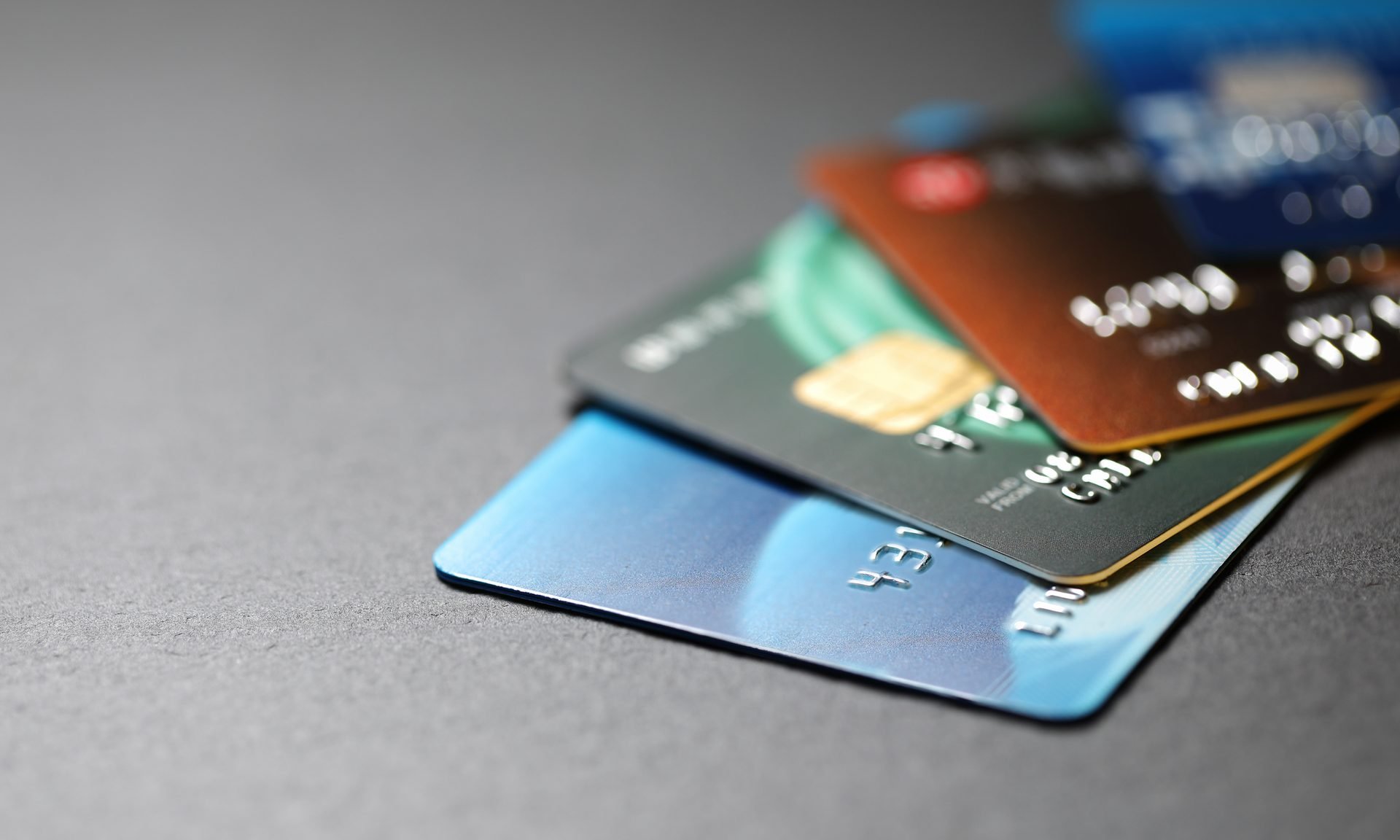How to Pick the Best Credit Card for You: 4 Easy Steps
If you know your options and ask the right questions, you can find the best fit for your spending habits and goals.

Many or all of the products on this page are from partners who compensate us when you click to or take an action on their website, but this does not influence our evaluations or ratings. Our opinions are our own.
Finding the best credit card is part art, part science.
No single credit card is better than all others in all categories — or for all people. But by understanding your options and asking the right questions, you can find the card that's the best fit for your spending habits and credit situation.
Follow these four steps to find the best credit card for you.
» MORE: NerdWallet's best credit cards
1. Check your credit
Find out what credit card offers you might be eligible for by checking your credit score. The better your score, the greater your chance of being approved for cards with better perks. Among ways to check your score:
- NerdWallet offers free access to credit scores.
- Many credit card issuers give cardholders free FICO scores.
- The three major credit bureaus (Experian, Equifax and TransUnion) sell credit scores.
If the number isn’t what you expected, check your credit reports to see what's causing the problem. You can then start figuring out ways to improve it, from changing your spending habits to disputing an error on your reports, if you need to. Federal law entitles you to one free copy of your credit report from each of the three major bureaus every 12 months. Get your free reports at AnnualCreditReport.com, a federally authorized site.

2024’s top credit cards
Shop our rigorously researched Best-Of Awards for the year’s smartest credit cards.

2024’s top credit cards
Shop our rigorously researched Best-Of Awards for the year’s smartest credit cards.

Our Nerds’ top credit cards
Shop our rigorously researched Best-Of Awards for the year’s smartest credit cards.

Our Nerds’ top credit cards
Shop our rigorously researched Best-Of Awards for the year’s smartest credit cards.

2. Identify which type of credit card you need
There are three general types of credit cards:
- Cards that help you improve your credit when it's limited or damaged.
- Cards that save you money on interest.
- Cards that earn rewards.
The best card for you is one with features designed to meet your specific needs. If you don't travel much, for example, then the best travel card in the world isn't going to do you a lot of good.
If you want to build or rebuild credit: Student or secured credit card
Student credit cards, unsecured cards meant for college students who are new to credit, are easier to qualify for than other types of credit cards. So are secured credit cards, which generally require a security deposit of $200 or more. Your deposit is returned to you when the account is upgraded or closed in good standing.
If you want to save on interest: Low-interest, 0% APR or balance transfer card
A card with an introductory 0% APR period or ongoing low interest could be a good match for you if you plan to use your credit card in case of emergencies, or if you have an irregular income and carry a balance from time to time. A balance transfer offer could help you pay off a high-interest debt interest-free. Keep in mind that these offers may be harder to find if you have average or poor credit.
» MORE: Find the best low-interest or 0% APR credit card with this flowchart
If you want to earn rewards: Rewards, travel or cash back
A rewards credit card is a good match for you if you pay off your balance in full every month and never incur interest. These cards typically have higher APRs, but offer larger sign-up bonuses and give you points, miles or cash back on every dollar you spend.
» MORE: Find the best rewards credit card with this flowchart
3. Narrow your choices by asking the right questions
Visit NerdWallet’s credit card comparison tool and search for the type of credit card you're looking for, filtering results according to your credit score and monthly spending. As you go through the top picks, consider these questions.
For student and secured credit cards:
- Will this card help me build my credit? Look for a card that reports your credit card payments to the three major credit bureaus. Many secured cards don't do this.
- How much does it cost to open an account, including the annual fee? The rewards on these cards generally aren’t high enough to warrant an annual fee. Unless you have very poor credit, you can likely avoid this expense. For secured cards, the lower the security deposit, the better, although your credit limit may be tied directly to how much of a deposit you make.
- Can I graduate to a better card later on? Choose a card that will let you build your credit and upgrade to a card with more competitive terms. This makes it easier to leave your card open longer, boosting your average age of accounts in the long run.
For low-interest, 0% APR or balance transfer cards:
- How long is the 0% APR period, and what is the ongoing interest APR? Look for a card that gives you enough time to pay off your debt interest-free. If you’re planning on carrying balances over several years, consider a credit card with a low ongoing APR.
- What is the card’s balance transfer policy? If you’re doing a balance transfer, look up a card’s balance transfer fees. Find out what types of debt you can transfer and whether there’s a limit to how much you can move over. Note that the balance transfer APR on a card may be different from the purchase APR.
- Does the card offer rewards? If you’re looking for only a few months of 0% APR — perhaps instead of a sign-up bonus — you may be able to find a card that doles out generous ongoing rewards as well.
For rewards, travel or cash-back cards:
- How do I spend my money? Look for a card that delivers the highest rewards for the categories you spend the most on. If you’re a big spender, consider getting a card with an annual fee, if your rewards earnings would offset the cost. If you’re planning to use the card abroad, look for one with no foreign transaction fees.
- How complicated is this credit card? If you don’t want to contend with limited award seat availability, spending caps, rotating bonus rewards and loyalty tiers, consider a card with flat-rate cash-back rewards.
- How quickly will I earn rewards, and how much are they worth? Read NerdWallet’s rewards valuations to find the answers to these questions.
2024’s top credit cards
Shop our rigorously researched Best-Of Awards for the year’s smartest credit cards.

2024’s top credit cards
Shop our rigorously researched Best-Of Awards for the year’s smartest credit cards.

Our Nerds’ top credit cards
Shop our rigorously researched Best-Of Awards for the year’s smartest credit cards.

Our Nerds’ top credit cards
Shop our rigorously researched Best-Of Awards for the year’s smartest credit cards.

4. Apply for the card that offers you the highest overall value
Narrowing your choices is the easy part, but deciding between two or three similar cards can be quite difficult. If you've already found a clear winner after Step 3, go with that one. If not, it’s time for a tiebreaker round.
Look closely for differences. All other values being equal, here are some factors that might set a card apart:
For student and secured cards:
- Credit limit automatically increases. Certain cards let you increase your limit after a few consecutive on-time payments.
- Interest paid on your deposit. Some secured cards place your security deposit in an interest-earning CD. This way, you can earn a small amount of money on it.
For low-interest, 0% APR or balance transfer cards:
- Debt payoff planner. Some issuers let you create your own debt payoff plan on an online portal, a valuable tool if you're overwhelmed with debt.
- No late fees or penalty APR. Certain cards waive these charges. If you fall behind on payments, this could come in handy.
For rewards, travel or cash-back cards:
- Lower required spending. The less you need to spend to qualify for a sign-up bonus, the better.
- No expiration date on rewards. On some cards, you can use your rewards as long as you keep the card open.
When you finally pick a card, keep in mind that, on the application, you can include all income you have reasonable access to, not just your personal income. For students, that can include money from grants and scholarships, or allowances from parents. For others, it may include a partner or spouse's income.
So you’ve found the best credit card. What’s next?
Choosing the best credit card is an important decision, but don’t stop there. Use your card the right way to get the most for your money. If you’re trying to establish credit, pay your bill in full every month and don’t use too much of your available credit. Stick to your debt payoff plan if you snagged a 0% APR deal. And if you’re trying to rack up rewards, use your card for everyday purchases and pay your bill in full every month.
The credit card you choose should help you achieve your financial goals in the most affordable, efficient way possible, whether you’re trying to build credit, borrow money or earn rewards. Don’t settle for less. Find your best credit card here.
Article sources
NerdWallet writers are subject matter authorities who use primary,
trustworthy sources to inform their work, including peer-reviewed
studies, government websites, academic research and interviews with
industry experts. All content is fact-checked for accuracy, timeliness
and relevance. You can learn more about NerdWallet's high
standards for journalism by reading our
editorial guidelines.
Limited Time Only: Earn $1,000 Toward Travel!
Capital One Venture Rewards Credit Card 
Travel

For a limited time, the
Capital One Venture Rewards Credit Card is offering new cardholders an especially rich bonus: Enjoy $250 to use on Capital One Travel in your first cardholder year, plus earn 75,000 bonus miles once you spend $4,000 on purchases within the first 3 months from account opening - that’s equal to $1,000 in travel!
Find the right credit card for you.
Whether you want to pay less interest or earn more rewards, the right card's out there. Just answer a few questions and we'll narrow the search for you.





